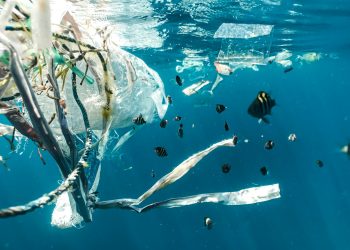Sustainable Practices for Eco-Friendly Living

“The Earth is not dying; it is being killed,”
wrote activist and poet Utah Phillips—a stark reminder that our planet’s challenges are not inevitable, but preventable. This statement encapsulates an unsettling truth: sustainable living is no longer optional; it is an urgent necessity. For years, I lived disconnected from this reality. But a single, transformative moment—a walk through a forest littered with plastic waste—pushed me to reconsider how I live and contribute to our world. Now, it’s clear: adopting eco-friendly habits isn’t just an act of goodwill; it’s a pledge to future generations and a redefinition of modern progress.
Breaking Free from the Myth of Convenience
We often equate convenience with progress. Fast fashion, single-use plastics, and disposable items seem to symbolize efficiency, but closer inspection reveals they come at an enormous ecological cost. Mass consumerism thrives on the principle that resources are infinite—despite their glaring scarcity. Philosophers like Nietzsche challenged traditional paradigms by urging society to reevaluate its values. Today’s challenge isn’t just ethical; it’s existential. Convenience, while seductive, obscures the devastating long-term consequences of habitual overconsumption. Our future depends on recalibrating these assumptions.
Adopting Radical Eco-Friendly Practices
Living sustainably requires going beyond surface-level change. Here are actionable steps to begin:
-
Embrace Circular Design:
Start asking, “What comes next?” for the products you use. Circular economies focus on minimizing waste by repurposing items. An old t-shirt becomes a cleaning rag; outdated electronics can be refurbished rather than discarded. -
Switch to Renewable Energy:
Transition to solar or wind power. While the upfront costs might appear daunting, tax incentives and long-term savings more than offset the initial investment. -
Adopt Minimalism:
Psychologists suggest that clutter contributes to mental stress. Beyond reducing waste, embracing minimalism boosts clarity and emotional well-being—a win for both humans and the planet.
Psychological Barriers to Sustainable Change
Why do so many resist adopting eco-friendly habits? Behavioral sciences offer clues. Cognitive biases, such as the status quo bias, compel individuals to stick to familiar routines. Philosopher Hannah Arendt once observed that “the greatest evil is the refusal to think.” Without questioning habitual patterns, inertia takes hold. Combining insights from psychology and sociology, we find that mentorship and communal efforts significantly boost environmental behavior. When communities unite with shared goals, they amplify their impact—pushing boundaries beyond individual effort alone.
Technology as a Catalyst for Eco-Conscious Transformations
Technology, often criticized for its ecological toll, paradoxically offers solutions. Blockchain technology, for example, is decentralizing carbon footprint monitoring, fostering greater transparency. Likewise, AI-driven data analytics uncover insights that guide resource optimization across industries. Consider vertical farming. Using AI-controlled environments, agricultural industries are now trimming traditional land use and significantly conserving water and nutrients. Tailored applications of technology aren’t just futuristic; they are the forces propelling us toward a gentler environmental footprint today.
Business and Ethical Responsibility
Corporations play a pivotal role. The era of corporate social responsibility (CSR) is morphing into expectations for measurable environmental impact. Patagonia, for instance, doesn’t just sell clothing—they pioneer environmental activism through their business model. Ethical leadership prioritizes sustainability not as an ancillary strategy, but as a cornerstone of longevity. Consumers wield the power to hold businesses accountable through their choices. Favor brands advocating zero-waste policies and prioritize enterprises that uplift ecological integrity.
Beyond Greenwashing: Navigating Truth in Sustainability
With sustainability in the limelight, the specter of ‘greenwashing’—misleading eco-friendly claims—cannot be ignored. It’s here that critical thinking becomes invaluable. Harvard’s Howard Gardner calls this “disciplined mind,” the ability to discern robust evidence amidst marketing noise. When evaluating products, examine certifications like Energy Star, Fair Trade, or LEED. Avoid being swayed by superficial branding and dig deeper into supply chain practices.
Dynamics of Habits: A Personal Commitment to Learning
Adopting sustainable practices isn’t a one-time decision; it’s an evolving journey informed by continual education. Neuroscientists point out that habitual changes occur incrementally—subtle shifts repeated with intention. Reading books like Naomi Klein’s
“This Changes Everything”
or engaging in MOOCs around sustainability enhances awareness. The philosopher John Dewey emphasized that “education is not preparation for life; education is life itself.” Through perpetual self-improvement, individuals amplify their eco-conscious impact.
Future Glimpses: Toward Interdisciplinary Solutions
As we look toward the horizon, cross-disciplinary innovations breathe optimism into this critical mission. Collaboration between ecologists, tech developers, and storytellers sparks breakthroughs in conservation methodologies. Imagine augmented reality tools creating immersive campaigns to educate young students on climate urgency or blockchain apps incentivizing community recycling initiatives. The convergence of diverse talents and motivations demonstrates that sustainability isn’t just an ideal—it’s a dynamic movement accelerating in real time.
Call to Action: Rewriting the Narratives of Progress
Embarking on a sustainable journey is less about guilt and more about empowerment. Start small—replace plastic bags with canvas totes or opt for a bike commute over driving. Gradually scale efforts by nourishing your curiosity about eco-friendly innovations and seeking communal action groups. Let your individual choices ripple outward. Just as my forest walk shifted my understanding, so too can your actions ignite creative change in others.
We are not passengers in the problem; we are architects of the solution. The question is no longer, “What can I do?” but rather, “What am I waiting for?” Together, we rewrite the definitions of convenience, progress, and legacy—all starting with commitment in the everyday.











